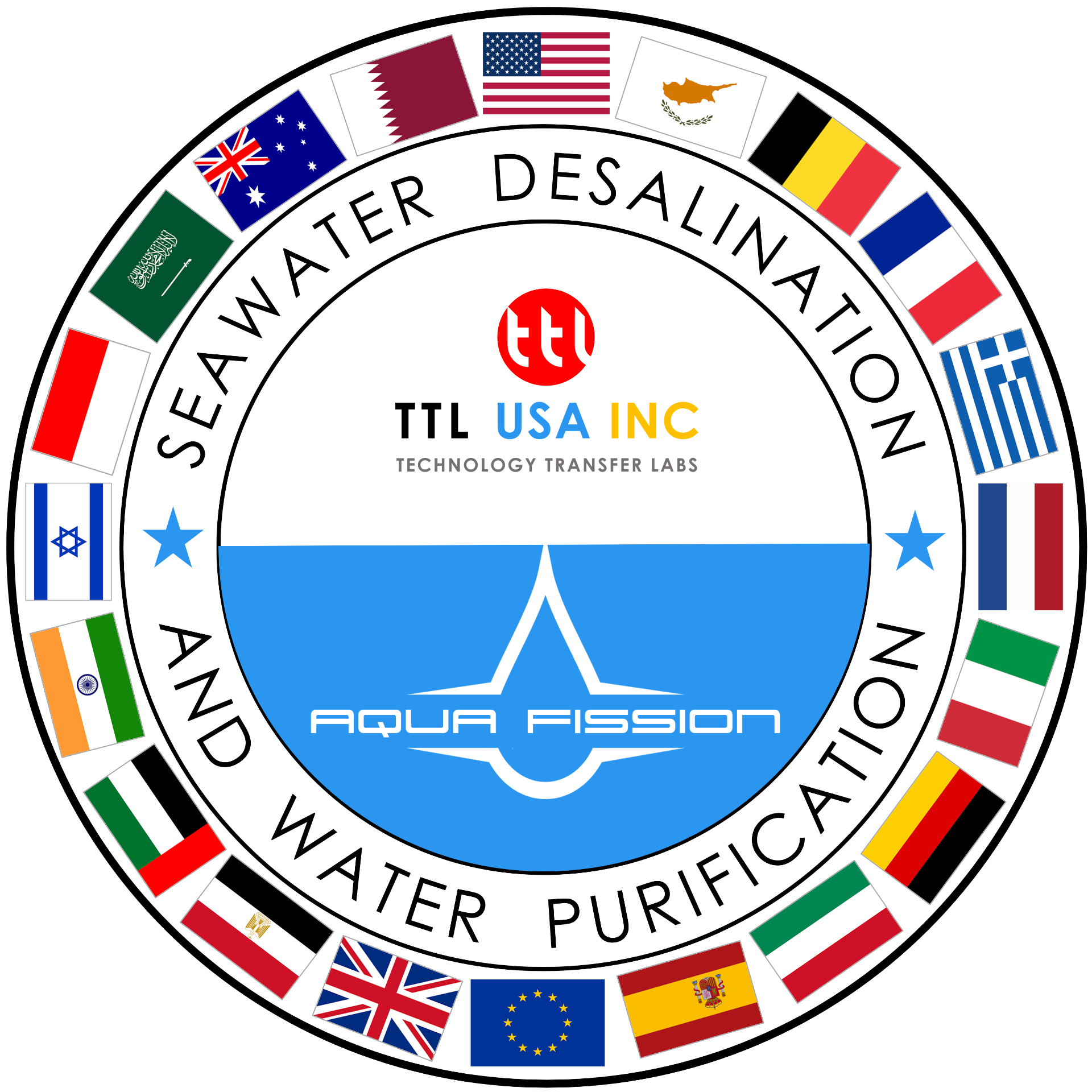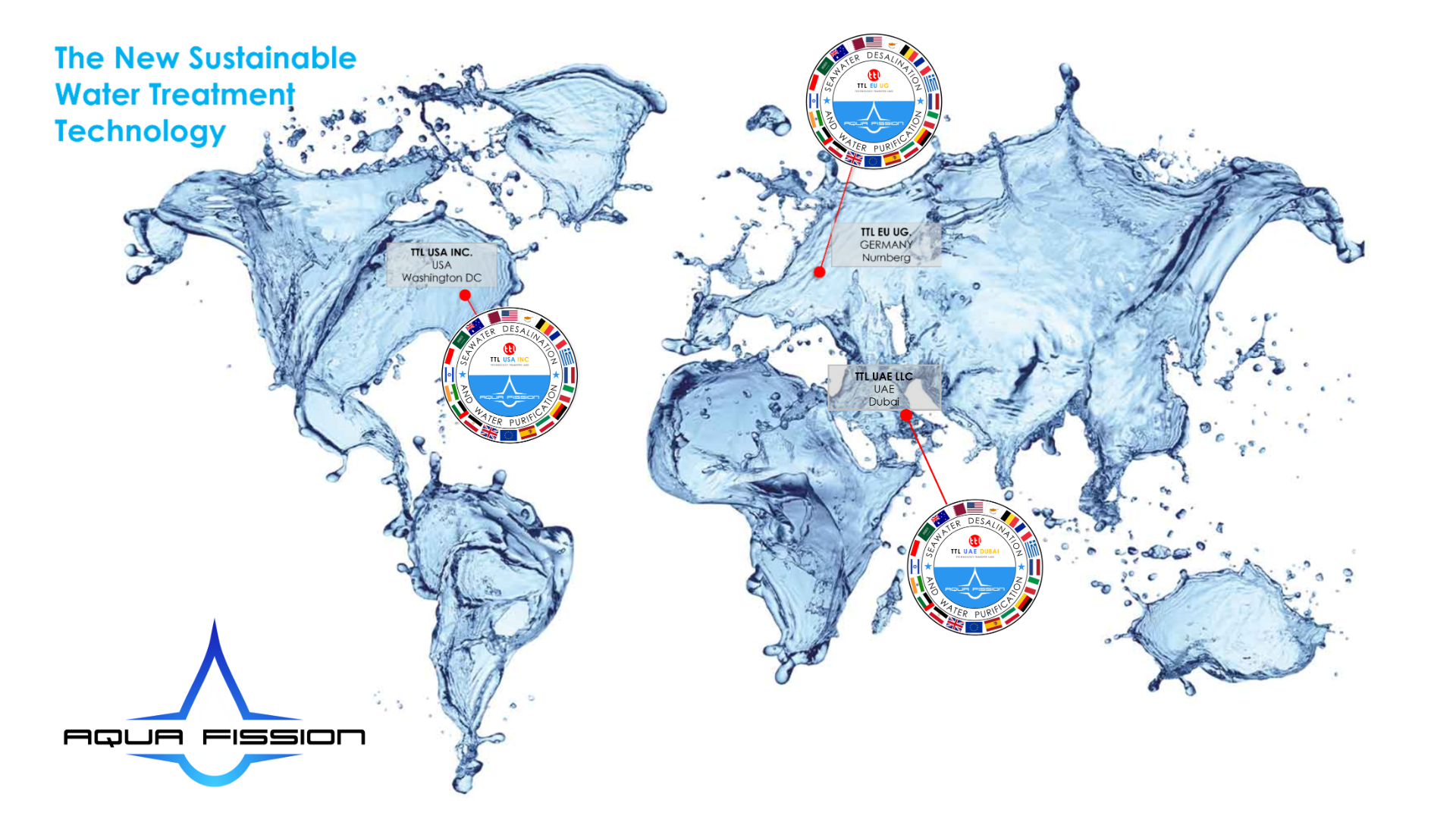Lithium Selection

Lithium Selection
Lithium is essential for the manufacturing of
electric vehicles, mobile devices, and energy storage batteries, powering
many high-tech products vital to the modern economy. Currently, approximately
60-70% of global lithium production is sourced from the evaporation of salt
lakes where lithium compounds (mainly lithium carbonate) are typically found
in the brine concentration ranging from 0.05% to 0.2%.
The estimated annual global production of lithium carbonate equivalent is around 100,000 metric tons, requiring about 100 million tons of salt lake brine water each year.
Aqua Fission - Lithium Technology process looks as follows:
Salty groundwater (brine) or salt lakes and ponds with high lithium content are pumped to the surface. The brine is then directed to the Aqua Fission - Lithium Technology unit, where thermodynamic processes facilitate the gradual evaporation of water, resulting in the formation of concentrated salts that precipitate. This process yields fresh water and allows for the selective extraction of lithium compounds. Additionally, the sediment contains a considerable amount of table salt, along with other salts and metals, which may or may not be separated. The extracted lithium compounds undergo further processing at specialized facilities to convert lithium carbonate into metallic lithium or its compounds suitable for various industries, including battery, glass, and ceramics manufacturing.
Aqua Fission - Lithium Technology is an innovative low-temperature desalination
method for extracting lithium from salt lake water. This patented technology
operates through the gradual evaporation of water, concentrating salts,
including lithium compounds, which are then collected as solid precipitates.
A key advantage of this technology is its capacity to evaporate water using
extremely low energy, consuming just 1-2 kWh per ton (net).
Aqua Fission - Lithium Technology utilizes the principle of thermodynamic (vacuum) evaporation, operating at ambient temperatures without the need for heating or high pressure. This approach enables the efficient and cost-effective separation of dissolved salts into various fractions, including raw salt (6-12% of water volume), lithium compounds (up to 0.2%), and other salts, while also producing clean freshwater.
In addition to lithium compounds, saltwater contains other valuable substances, such as sulfates, chlorides, borates, and heavy metals. Although the primary focus during lithium extraction is not on these additional salts, the Aqua Fission - Lithium Technology equipment can technically facilitate their extraction in subsequent processing stages.
Key features of the technology include:
- Significant volumes of processed brine
- Effective concentration methods, such as evaporation and crystallization at minimal cost
- Selective extraction for lithium acquisition, alongside the separation of other salts and metals, and the production of clean water
- Single- and multi-stage purification of the final product based on specific requirements
- No consumables, filters, membranes, inhibitors, or additional processing steps
- No complex equipment, high pressure or temperatures
- Compact units with high reliability
- Significant reduction in the processing time of saltwater, enabling a substantial increase in lithium production
- Environmental friendliness as the technology generates no pollution

Aqua Fission - Lithium Technology units are designed as vertical 20-foot tanks with a capacity to process 200 tons of saltwater per day, yielding 200-300 kg of lithium compounds. Additionally, they produce 10-25 tons of table salt and up to 5-8 tons of other salts and metals.
Each unit occupies only 9 m² of space and stands 6,5 meter tall. It is suitable for outdoor use and consumes minimal electricity, enabling the use of alternative energy sources, such as solar or wind power. Minimal maintenance staff is needed and daily maintenance is not required.
The cost of the resulting lithium compounds is expected to be significantly lower than current lithium carbonate prices—by a factor of 2 to 3 (approximately $3,000 to $4,000 per ton). Furthermore, the additional production of other commercial products, such as freshwater, salt, and various salt and metal compounds, will further reduce the overall cost of lithium compounds.
Aqua Fission - Lithium Technology operates year-round without the need for additional generators or mechanisms. Productivity can be scaled linearly by increasing the number of units used. To process the entire global volume of salt lake water, approximately 1,000 to 1,500 Aqua Fission - Lithium Technology units would be required.
The technology has been tested on similar products, received positive reviews, and has demonstrated its effectiveness. It is unparalleled in the world.
Aqua Fission - Lithium Technology offers plants of various capacities for the most efficient extraction of lithium carbonate (or other compounds) from salt lake water available today.
If you are interested in the technology or have any questions, please contact us!


